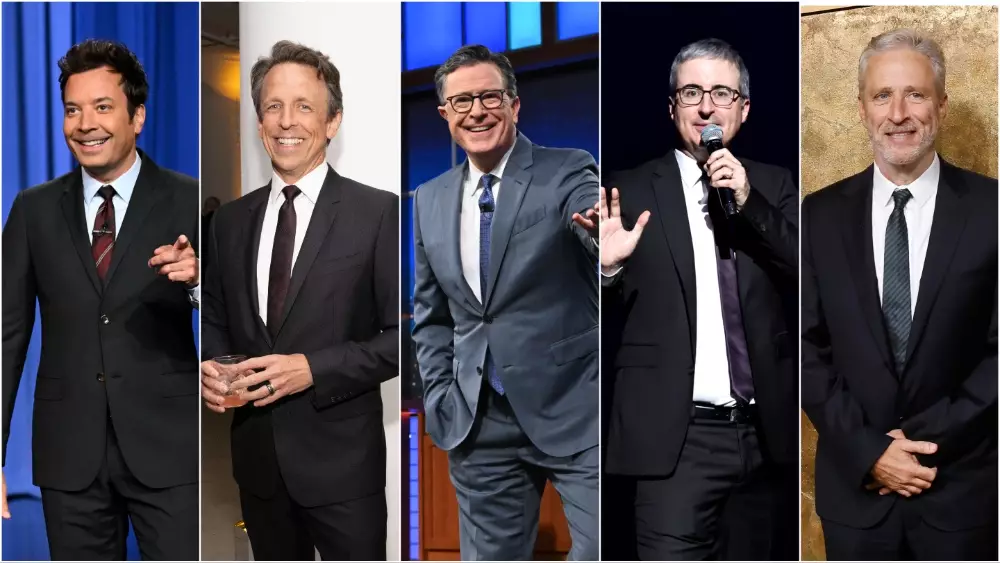The abrupt cancellation of *The Late Show with Stephen Colbert* signifies more than just a strategic shift; it highlights the fragility of entertainment institutions tethered to corporate interests. In a landscape where financial motives often trump artistic integrity or viewer loyalty, such decisions send shockwaves through both the industry and its dedicated audience. This move represents a disturbing trend: mainstream media brands prioritizing the bottom line over cultural relevance. The fallout extends beyond Colbert’s show—raising pressing questions about the future of creative spaces that rely on influential figures and loyal viewers.
The decision to axe a flagship program appears shortsighted, especially when considering the show’s cultural impact, audience engagement, and the seemingly immense value it brought in cultural discourse. It’s difficult to ignore that these moves are rooted not merely in economics but in a broader pattern of corporate indifference to entertainment as an art form. The show wasn’t just a platform for comedy and political commentary; it was a hub for satirical resilience amid societal polarization. Yet, the powers that be seem to view it as expendable—an expense instead of an investment in cultural dialogue. This reveals a concerning trend: when financial considerations override cultural intelligence, the industry risks losing its soul.
Celebrity Solidarity: A Testament to Industry Bonds
What struck many viewers is the unwavering support from Colbert’s industry peers, despite the looming threat of similar fates. Colbert’s friends—Jimmy Fallon, Seth Meyers, John Oliver, Jon Stewart, and Andy Cohen—rallied around him in a show of solidarity, gathering together on his show in a move that was both humorous and meaningful. Their collective presence underscored the importance of camaraderie during times of corporate upheaval. These figures, often competitors in their own right, demonstrated that the bonds forged in the trenches of late-night comedy go beyond ratings or network allegiances—they are about shared values and standing against a commodified landscape.
This act of unity is more than symbolic; it serves as a silent protest against the corporate forces that threaten the diversity of voices in comedy and political satire. The comedic skits, subtle jabs, and staged antics served as a reminder of the resilience that can emerge from loyalty—proof that behind the glitz and glamour, these entertainers see themselves as part of a larger cultural conversation. Even smaller moments—the likes of Adam Sandler, Anderson Cooper, and Lin-Manuel Miranda—posed as ambassadors of industry integrity. Their participation, including a mock-performance of a popular song interrupted by a dismissive letter, was a satirical reflection of corporate absurdity and a nod to the power of solidarity.
The Irony of the “Financial Decision”
While corporations often cloak their cutbacks in the language of economics—citing “financial reasons”—the underlying motives are frequently more complex, rooted in strategic rebranding, politics, or profit maximization. The letter signed by “the Paramount family of global entertainment properties and AI weapons systems” exemplifies the irony of corporate arrogance—a parody of how industry rhetoric can sometimes be cloaked in technological and globalized language to mask shortsighted decisions.
The supposed financial losses cited by the network seem almost comically disconnected from the show’s cultural standing or audience loyalty. The joke about losing “$40M-$50M” on a number-one show underscores the disconnect between monetized metrics and real cultural value. It hints at a deeper issue: the entertainment industry’s willingness to sacrifice meaningful content at the altar of short-term profits. The presence of corporate entities like “AI weapons systems” in the letter satirizes the increasingly cold, mechanized approach to content creation—where human connection and cultural relevance are secondary to algorithms and profit margins.
What emerges from this spectacle is a bitter truth: the entertainment industry’s new normal involves cold calculations and dismissive corporate narratives that often negate the importance of cultural contributors and creative voices. The fact that notable figures could openly mock this logic on Colbert’s show symbolizes a broader appetite for resistance—a refusal to accept the commodification of culture without critique.
Resistance as a Cultural Imperative
Despite the makings of a corporate coup, the reaction from Colbert’s allies exposes a resilient undercurrent in media: the refusal to surrender entirely to commercialization. Their collective engagement illustrates the importance of community and mutual support amid industry downturns. By confronting the corporate figures directly, they uphold an unspoken promise—to challenge the narrative that money is the only measure of worth in entertainment.
This solidarity signals a broader cultural battle: against monopolized media empires that prioritize shareholder profit over societal and artistic value. It emphasizes that a show’s importance isn’t just reflected in its ratings or advertising revenue but in its capacity to influence, inspire, and embody resistance. The political jabs, the satire, and even the audacious defiance displayed on Colbert’s show are acts of cultural rebellion, reminding us that entertainment is not merely entertainment but a vital space for social critique.
In a media environment increasingly driven by automation, streaming algorithms, and profit-driven desperation, moments of genuine camaraderie and resistance serve as a crucial bulwark. They affirm that, even in an industry obsessed with numbers and artificial intelligence, human connection and loyalty still possess the power to challenge the status quo. In this scenario, the real victory isn’t just about saving a late-night show; it’s about preserving the cultural integrity that keeps entertainment meaningful and transformative.
